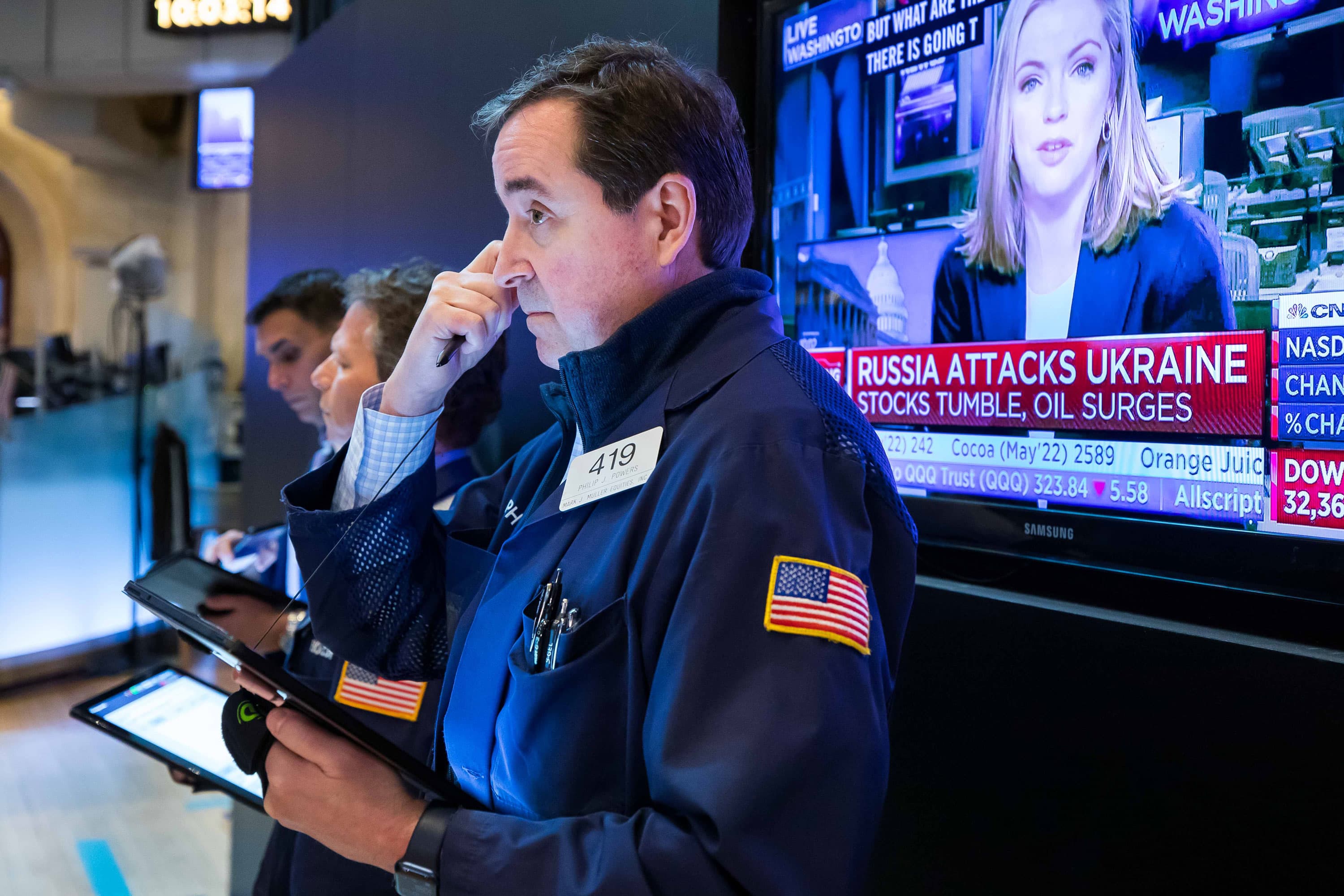
Stock futures fell early Friday as worrisome developments in Ukraine weighed on sentiment as investors kept an eye toward the latest reading on the jobs market.
Futures tied to the Dow Jones Industrial Average dropped 360 points, or 1%. Those for the S&P 500 also declined 1%, while Nasdaq 100 futures moved down 0.9%.
The decline in futures followed reports that smoke was visible from a nuclear power plant in Ukraine — the largest in Europe — after Russian troops attacked. Reports Friday morning indicated that Russian forces had seized the plant in Zaporizhzhia.
The situation in Ukraine is rapidly deteriorating, and dispatches from the country are difficult to confirm.
Energy prices were higher across the board, with U.S. benchmark West Texas Intermediate crude up 2.4% to $110.26 and global standard Brent crude rising 2.2% to $112.88. Government bond yields plunged as investors cut risk, with the benchmark 10-year Treasury down 6.2 basis points to 1.78%.
The moves come in advance of the Labor Department’s February nonfarm payrolls report. Economists surveyed by Dow Jones expect growth of 440,000 jobs and the unemployment rate to tick down to 3.9%. Hourly wages are projected to grow 5.8% year over year.
This is the last jobs report before the Federal Reserve’s next meeting, where the central bank is expected to begin hiking interest rates. Fed Chair Jerome Powell said this week that he is leaning toward support a single 25-basis point hike in March. A basis point is equal to 0.01%.
“I think because we saw Powell say, uncharacteristically frankly, specifically say that he planned to support a 25-basis point hike, that speculative thinking may be a little bit more anchored at a 25-basis point hike even if we do see a stronger-than-expected report tomorrow,” said Lauren Goodwin, economist and portfolio strategist at New York Life Investments.
The wage growth component of the report could a key data point as traders try to figure out the policy path for the path, Goodwin said.
“Even 5.8% wage growth is a wage cut if inflation is creeping up above 7%,” Goodwin said.
The war on Ukraine will also be at the front of investors’ minds on Friday. Ukraine still holds its capital city, Kyiv, more than a week into the fighting, though reports of shelling have increased in other major cities. One million Ukrainians have fled the country, according to the United Nations.
Meanwhile, economic sanctions from the U.S. and its allies have effectively cut off Russia’s economy from large parts of the global financial system. JPMorgan said in a note on Thursday that Russia’s economy could shrink by 35% at an annualized rate in the second quarter.
“Overall our view is that while there will be limited direct impact to U.S. equities from the Russia-Ukraine conflict, as evidenced by the SPX rally since the Russian invasion, the indirect impact via the commodity and sentiment channels is non-trivial,” Maneesh Deshpande, Barclays head of U.S. equity strategy and global equity derivatives, said in a note.
Earnings reports drove some big moves in extended trading. Retailer Gap and restaurant chain Sweetgreen both surged after beating expectations. Chipmaker Broadcom rose after outpacing estimates for earnings and revenue.
On Thursday, the three major averages closed lower after a choppy session. The Dow was positive for much of the day before closing 96 points lower. The Nasdaq, dragged down by software stocks, fell 1.56%.
The Dow is down 0.9% for the week, on track for its fourth negative week in a row. The S&P 500 is down about 0.5% for the week, while the Nasdaq Composite is down more than 1%.




